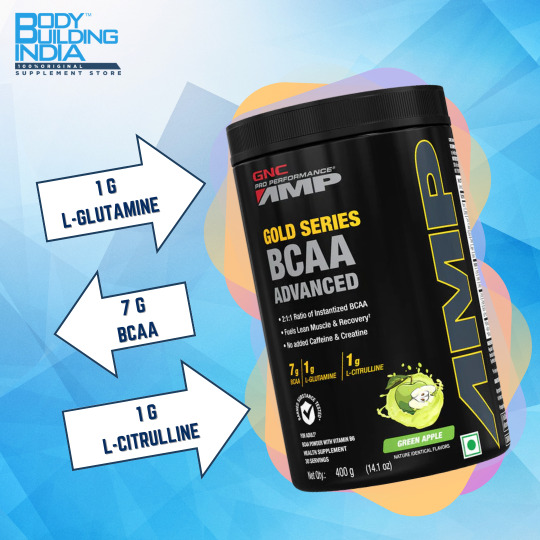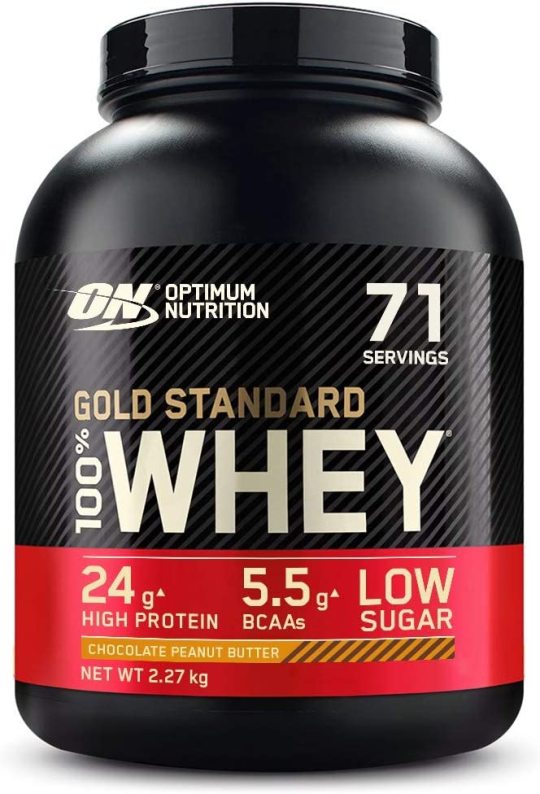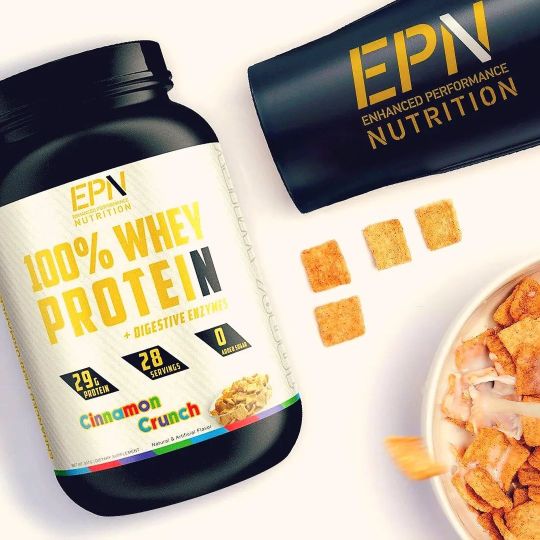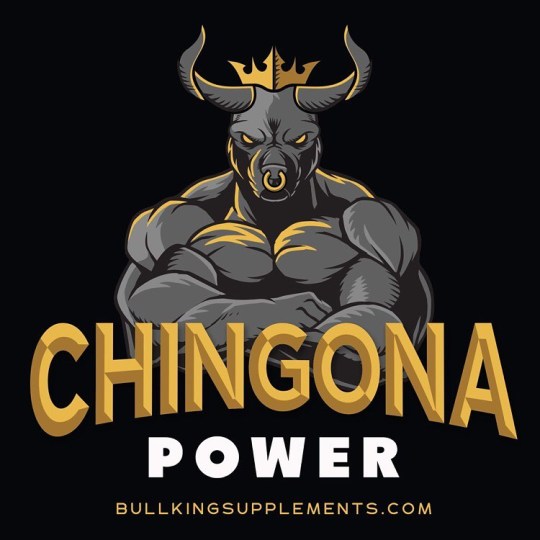#bcaas
Text
Role of amino acids in muscle growth and repair

Have you ever wondered how our muscles grow and repair themselves after a strenuous workout or injury? It's a fascinating process that relies on the power of amino acids.
Amino acids play a crucial role in supporting muscle growth and repair. These tiny building blocks are the secret behind our body's ability to recover and build stronger muscles. Let's delve into the world of amino acids and explore their vital role in these processes.

Essential Amino Acids and Muscle Growth
Essential amino acids are the building blocks of protein that our bodies cannot produce on their own. They must be obtained through our diet or supplementation.
When it comes to muscle growth, essential amino acids are crucial for the process of muscle protein synthesis. This is the mechanism by which our bodies repair and rebuild muscle fibers after exercise or injury.
Certain essential amino acids have proven to be particularly important for muscle growth. Leucine, for example, is known to stimulate muscle protein synthesis and promote muscle recovery. Other essential amino acids like isoleucine and valine also contribute to the growth and repair of muscle tissue.
To ensure an adequate intake of essential amino acids, it is essential to include protein-rich foods in our diet. Sources such as lean meats, poultry, fish, eggs, dairy products, legumes, and nuts are excellent examples of foods that provide a rich supply of essential amino acids necessary for muscle growth and repair. Incorporating these foods into our meals can help support optimal muscle development.
Non-Essential Amino Acids and Muscle Repair
Non-essential amino acids are a group of amino acids that our bodies can produce internally, eliminating the necessity to obtain them directly from our diet.
When it comes to muscle tissue repair, non-essential amino acids play a vital role. They provide the necessary building blocks for the regeneration and restoration of damaged muscle fibers, aiding in the repair process.
Specific non-essential amino acids contribute significantly to muscle repair. For instance, glutamine is known for its ability to support muscle recovery and reduce muscle soreness. Glycine is another non-essential amino acid that plays a role in collagen synthesis, supporting the repair of connective tissues within muscles.
Including food sources rich in non-essential amino acids in our diet can support muscle repair. Foods such as eggs, chicken, turkey, fish, dairy products, legumes, nuts, and seeds are excellent sources of non-essential amino acids. By incorporating these foods into our meals, we provide our bodies with the necessary resources to facilitate muscle tissue repair and recovery.
Branched-Chain Amino Acids (BCAAs) and Muscle Recovery
Branched-Chain Amino Acids (BCAAs) are a specific group of essential amino acids that have gained popularity for their significance in muscle recovery.
BCAAs play a crucial role in promoting muscle protein synthesis, the process by which new muscle proteins are built. They also help reduce muscle breakdown, particularly during intense exercise or periods of calorie restriction.
Consuming BCAA-rich foods or supplements post-workout is important for optimizing muscle recovery. BCAA supplementation can provide a convenient and efficient way to ensure an adequate intake of these specific amino acids. Foods such as lean meats, dairy products, eggs, and legumes also contain BCAAs and can be incorporated into a post-workout meal or snack to support muscle recovery. Including BCAAs in your post-workout nutrition regimen can aid in replenishing amino acid stores and supporting the repair and growth of muscle tissue.
The Importance of Protein Timing and Quantity
Consuming adequate protein is crucial for supporting muscle growth and repair. Protein provides the necessary amino acids that serve as the building blocks for muscle tissue. Without sufficient protein intake, the body may struggle to repair damaged muscle fibers and promote optimal muscle growth.
Protein timing refers to the concept of strategically distributing protein intake throughout the day to maximize muscle protein synthesis. Studies have shown that consuming protein-rich meals or snacks within a few hours before and after exercise can enhance the body's ability to synthesize new muscle proteins, leading to improved muscle recovery and growth.
The optimal protein intake for muscle growth and repair varies depending on factors such as age, body weight, activity level, and goals. As a general guideline, it is recommended to consume around 0.8 to 1 gram of protein per kilogram of body weight per day for sedentary individuals. However, individuals engaged in regular resistance training or intense physical activity may require higher protein intake, ranging from 1.2 to 2 grams of protein per kilogram of body weight.
It is important to note that protein should be consumed as part of a balanced diet that includes a variety of nutrient-dense foods. Incorporating lean meats, poultry, fish, dairy products, eggs, legumes, and plant-based protein sources into meals and snacks can help meet the recommended protein intake and support muscle growth and repair. Consulting with a healthcare professional or registered dietitian can provide personalized recommendations based on individual needs and goals.
Combining Amino Acids and Resistance Training
When it comes to muscle growth, the combination of amino acids and resistance training has a synergistic effect. Amino acids provide the necessary building blocks for muscle protein synthesis, while resistance training creates the stimulus for muscle adaptation and growth. Together, they work hand in hand to promote optimal muscle development.
Proper nutrition alongside exercise is essential for achieving optimal results. Along with amino acids, a well-balanced diet that includes adequate protein, carbohydrates, and healthy fats provides the necessary energy and nutrients to support muscle growth and repair. Without proper nutrition, the body may lack the resources needed to maximize the benefits of resistance training.
To incorporate amino acids into pre and post-workout nutrition, consider the following tips:
- Pre-workout: Consuming a balanced meal or snack that includes protein-rich foods before a workout can help provide a steady supply of amino acids during exercise. Examples include lean meats, yogurt, or a protein shake.
- Post-workout: After a workout, aim to consume a combination of protein and carbohydrates to replenish energy stores and support muscle recovery. This can be achieved through a protein shake, a chicken breast with brown rice, or Greek yogurt with fruit.
- Consider supplementing: If needed, amino acid supplements like BCAAs or essential amino acid blends can be added to your pre or post-workout routine. However, it's important to consult with a healthcare professional or registered dietitian to determine the right dosage and suitability for your specific needs.
By combining amino acids with resistance training and ensuring proper nutrition, you can optimize your muscle growth potential and enhance the benefits of your workouts. Remember to listen to your body, stay hydrated, and make adjustments to your nutrition plan as necessary.
Conclusion
In summary, amino acids play a vital role in muscle growth and repair. Essential amino acids are necessary for muscle protein synthesis, while non-essential amino acids contribute to muscle tissue repair. Branched-chain amino acids (BCAAs) have shown promising effects on muscle recovery.
It is crucial to maintain a balanced diet that provides an adequate intake of both essential and non-essential amino acids. Including protein-rich foods such as lean meats, dairy products, eggs, legumes, and nuts can help ensure a sufficient supply of amino acids for optimal muscle health.
To optimize amino acid intake and tailor it to individual needs, it is highly recommended to seek personalized advice from a healthcare professional or registered dietitian. They can provide guidance on the ideal amount of protein and amino acids based on factors such as age, weight, activity level, and specific health goals.
By understanding the role of amino acids, maintaining a balanced diet, and seeking professional guidance, individuals can enhance their muscle growth and repair processes. Remember, the journey to optimal muscle health is unique for each person, and personalized advice can help you make the most informed choices for your body's needs.
FAQ
Do amino acids build muscle? Amino acids are the building blocks of protein, which is essential for muscle growth and repair. When consumed in adequate amounts and combined with resistance training, amino acids support muscle protein synthesis, leading to muscle growth over time. However, it's important to note that simply consuming amino acids alone may not directly build muscle. They work best when incorporated into a well-rounded diet and exercise regimen. What are the best amino acids for muscle growth? Several amino acids contribute to muscle growth, but some stand out for their specific benefits. Branched-chain amino acids (BCAAs), including leucine, isoleucine, and valine, have been shown to stimulate muscle protein synthesis and aid in muscle recovery. Additionally, other essential amino acids like lysine, methionine, and phenylalanine also play critical roles in muscle growth and repair. It's important to consume a balanced mix of essential amino acids to support overall muscle development. Can taking amino acid supplements enhance muscle growth? Amino acid supplements, particularly BCAAs, have gained popularity in the fitness community. While they can be beneficial for individuals with specific needs or dietary restrictions, it's important to note that whole food sources generally provide a broader spectrum of amino acids and other essential nutrients. If considering amino acid supplements, it's recommended to consult with a healthcare professional or registered dietitian to determine the right supplementation strategy for your individual goals and needs. How much protein or amino acids do I need for muscle growth? The optimal protein or amino acid intake for muscle growth depends on factors such as age, weight, activity level, and goals. As a general guideline, consuming around 0.8 to 1 gram of protein per kilogram of body weight per day is recommended for sedentary individuals. However, those engaged in regular resistance training or intense physical activity may require higher protein intake, ranging from 1.2 to 2 grams per kilogram of body weight. It's best to consult with a healthcare professional or registered dietitian to determine your specific protein or amino acid needs. Can I get enough amino acids from my diet alone? Yes, it is possible to obtain sufficient amino acids from a well-balanced diet that includes protein-rich foods such as lean meats, poultry, fish, eggs, dairy products, legumes, and nuts. These whole food sources provide a broad spectrum of amino acids, ensuring you meet your body's requirements for muscle growth and repair. However, in certain cases, such as dietary restrictions or specific needs, amino acid supplements may be considered under the guidance of a healthcare professional or registered dietitian.
Read the full article
#aminoacids#BCAA#BCAAs#Branched-ChainAminoAcids#essentialaminoacids#musclegrowth#musclerepair#Non-EssentialAminoAcids#protein#resistancetraining
0 notes
Text
Muscle Mantra ARM3D -Instantized BCAA with Glutamine & Taurine
GNC AMP Gold Series BCAA Advanced
Xtend BCAAs



#BodyBuildingIndia#bbi#mentalhealth#physicalhealth#weight#pullup#exercise#muscle#musclebuilding#glutamine#protein#fitness#fitnessgoal#muscletech#acestor#bcaapowder#bcaas#bcaasupplement#supplements
0 notes
Text
Get Fit with These Essential Nutritional Supplements
Getting fit isn’t just about practicing consistently and eating a reasonable eating regimen, it’s likewise about giving your body the fundamental supplements it necessities to work at its ideal. Healthful enhancements can assist you with accomplishing your wellness objectives by giving the supplements your body needs to fabricate muscle, further develop perseverance, and recuperate quicker. In…

View On WordPress
#bcaas#beta-alanine#caffeine#Calcium#creatine#fit#fit body#fitbit#fitgirl#fitness#fitness band#fitness center#fitness definition#fitness equipment#fitness first#fitstar#glutamine#health#health ag#health anxiety#health benefits of ginger#health care#health education#health food#healthy breakfast#healthy breakfast ideas#healthy food#healthy snacks#nutrition#nutritions
0 notes
Photo

Put it on your watchlist! SUPPS: The Movie this weekend @suppsmovie now on Apple TV / iTunes Movies, YouTube Movies, Amazon Prime Video, Google Play and VimeoOnDemand ! #appletv #itunes #documentary #arnoldschwarzenegger #sportsdocumentary #fitnessdocumentary #healthdocumentary #npccompetitor #npcbodybuilding #ifbbclassicphysique #teenagebodybuilding #mrolympia #arnoldschwarzenegger #supplements #creatine #whey #protein #preworkout #bcaas #fatburner #bcaa #vitamins #supps #classicbodybuilding #goldenerabodybuilding #goldenerabodybuilder #suppsmovie #alexardenti #ardentfilms #ifbbpro #weider https://www.instagram.com/p/Cpp2rHTrblW/?igshid=NGJjMDIxMWI=
#appletv#itunes#documentary#arnoldschwarzenegger#sportsdocumentary#fitnessdocumentary#healthdocumentary#npccompetitor#npcbodybuilding#ifbbclassicphysique#teenagebodybuilding#mrolympia#supplements#creatine#whey#protein#preworkout#bcaas#fatburner#bcaa#vitamins#supps#classicbodybuilding#goldenerabodybuilding#goldenerabodybuilder#suppsmovie#alexardenti#ardentfilms#ifbbpro#weider
0 notes
Text
Top 5 Best Protein Powders on Amazon for Muscle Building and Recovery - A Comprehensive Guide
Protein powder is a popular supplement for those looking to build muscle, recover from workouts, and support overall health and wellness. With so many options available, it can be difficult to know which protein powder is the best for you. To help you make an informed decision, we’ve compiled a list of the top 5 protein powders available on Amazon.
1. Optimum Nutrition Gold Standard 100% Whey…

View On WordPress
#BCAAs#Best protein powders#Creatine#High-quality protein powders#Muscle building#Plant-based protein#Post-workout recovery#Protein powder#Recovery#vegan protein powder#Whey protein
0 notes
Text
XXTRM OPTIMAL BCAAs 2:1:1 | GLUTAMINE | ELECTROLYTES (300G/0.66LB) | BOLT NUTRITION
XXTRM is An Amino Blast formula that contains GLUTAMINE, Optimal BCAAs ratio of 2:1:1 (Leucine, Isoleucine, and Valine) Plus Electrolyte blend a Performance driven Amino Blast Formula. You can fuel your workout with XXTRM Amino Blast which provides faster nutrient absorption into the bloodstream, hydration, and instant energy.
#BCAAs#glutamine#electrolyte#electrolytes#leucine#isoleucine#valine#glutamine powder#branched chain amino acids#bcaa amino acids#glutamine supplement#glutamine price#use of glutamine#electrolytes are#leucine amino acid#isoleucine amino acid#energy booster#energy boost#boost energy#energy boost supplement#stay hydrate#hydrated#keep yourself hydrated#keep hydrated#Muscle recovery#muscle recovery supplements#best muscle recovery supplements#intense workout#protein synthesis#muscle protein synthesis
0 notes
Photo

Enhanced Performance Nutrition’s 100% Whey Protein is made without fillers such as Maltodextrin, Fructose or other low cost ingredients. Their whey protein is providing the highest biological value of any protein source. This makes it ideal for building lean muscle. It also contains both Papain and Protease for protein absorption, as well as Whey Isolate and BCAAs (Leucine, Isoleucine, and Valine) for protein synthesis. Their 100% Whey is absorbed immediately, flooding your muscles with key amino acids. This all makes for a perfectly assembled protein powder that your muscles will be craving after a workout. ✅️Added Whey Isolate for Protein Synthesis ✅️Digestive Enzymes for Absorption ✅️Cold-Processed Whey Protein ✅️Ultra-Filtered Whey ✅️Natural BCAAs for Fast Recovery ✅️Mixes Great ✅️29g of Protein Per Serving Go to Ep-Nutrition.com. Use discount code AREVO for 10% off of your order. Follow @epnsupplements on IG. #protein #powder #dietary #supplements #bcaas #bcaa #fast #recovery #bodybuilding #powerlifting #whey #isolate #synthesis #digestiveenzymes #discout #code #weightlifting #weighttraining #athlete #football #wrestling #buildmuscle https://www.instagram.com/p/CmBESy8urC1/?igshid=NGJjMDIxMWI=
#protein#powder#dietary#supplements#bcaas#bcaa#fast#recovery#bodybuilding#powerlifting#whey#isolate#synthesis#digestiveenzymes#discout#code#weightlifting#weighttraining#athlete#football#wrestling#buildmuscle
0 notes
Text
Branched-Chain Amino Acids (BCAAs): Benefits and Sources

Are you looking to enhance your muscle growth, improve exercise performance, and boost your overall well-being? Look no further than branched-chain amino acids (BCAAs). These essential nutrients have taken the fitness and health industry by storm, thanks to their potential benefits in protein synthesis, muscle repair, and more. In this blog post, we will delve into the world of BCAAs, exploring their incredible advantages and providing you with reliable sources to easily incorporate them into your diet. Get ready to unlock the secrets of BCAAs and take your fitness journey to new heights!
Understanding BCAAs
BCAAs, or branched-chain amino acids, are a group of three essential amino acids: leucine, isoleucine, and valine. These amino acids are considered "essential" because our bodies cannot produce them on their own, so we must obtain them through our diet or supplements.
BCAAs play a vital role in our body's protein synthesis process, which is crucial for muscle growth and repair. When we engage in physical activity or exercise, our muscles undergo stress and micro-tears. BCAAs help stimulate protein synthesis, allowing our muscles to recover and rebuild stronger.
Leucine, one of the three BCAAs, is particularly significant in muscle protein synthesis. It activates a pathway in our body known as the mammalian target of rapamycin (mTOR), which triggers the synthesis of new muscle proteins. Isoleucine and valine also contribute to protein synthesis and provide additional support for muscle recovery.
In addition to their role in muscle growth, BCAAs also help reduce muscle breakdown during intense exercise or periods of calorie restriction. They serve as an energy source for our muscles, helping to preserve muscle mass and prevent muscle wasting.
Understanding the importance of BCAAs in protein synthesis, muscle growth, and recovery can provide valuable insights into how these amino acids can optimize your fitness journey and overall well-being.
Benefits of BCAAs
BCAAs have been researched extensively, and the following benefits have been associated with their consumption:

Improved muscle recovery and reduced muscle soreness: BCAAs have shown potential in speeding up the recovery process after intense exercise. They help reduce muscle damage and alleviate post-workout muscle soreness, allowing you to bounce back faster and get back to your fitness routine.
Enhanced exercise performance and endurance: BCAAs can be a valuable tool to enhance exercise performance. They provide an additional energy source during workouts, delaying the onset of fatigue and improving endurance. By reducing the perception of fatigue, BCAAs may help you push through challenging workouts and reach your fitness goals.
Potential aid in weight loss and fat burning: BCAAs have been suggested to support weight loss efforts. They can help preserve lean muscle mass during calorie-restricted diets, preventing muscle breakdown. By preserving muscle, BCAAs contribute to an increased metabolic rate, potentially aiding in fat burning and maintaining a healthy body composition.
Reduced muscle wasting during calorie-restricted diets: When following a calorie-restricted diet, the body may break down muscle tissue for energy. BCAAs can help counteract this process by providing the body with an alternative energy source. By preserving muscle mass, BCAAs contribute to maintaining a toned physique during weight loss journeys.
Support for liver function in individuals with advanced liver disease: BCAAs have shown promise in supporting liver health. In individuals with advanced liver disease, known as hepatic encephalopathy, BCAAs may help improve brain function and reduce complications associated with liver dysfunction.
Potential reduction of symptoms in movement disorders caused by antipsychotic drugs: Some studies suggest that BCAAs might have a positive impact on movement disorders induced by antipsychotic medications. While further research is needed, BCAAs could potentially alleviate symptoms and improve the quality of life for individuals affected by these conditions.
By understanding the multiple benefits associated with BCAAs, you can harness their potential to optimize your fitness performance, aid in weight management, support liver health, and potentially improve certain movement disorders.
Reliable Sources of BCAAs
Incorporating natural food sources rich in BCAAs is essential for a well-rounded and balanced diet. Here are some reliable sources of BCAAs:

- Meat and poultry: Chicken, beef, and pork are excellent sources of BCAAs. These meats provide a complete protein profile, including all three essential amino acids: leucine, isoleucine, and valine. Choose lean cuts of meat to minimize saturated fat intake.
- Fish and seafood: Tuna and salmon are not only delicious but also packed with BCAAs. Additionally, other seafood options like shrimp and cod also contain significant amounts of these beneficial amino acids. Fish and seafood are also rich in omega-3 fatty acids, which offer additional health benefits.
- Dairy products: Milk, yogurt, and cheese are not only a great source of calcium but also provide BCAAs. Opt for low-fat or skim dairy products to reduce saturated fat intake while still benefiting from their BCAA content. Greek yogurt, in particular, tends to have higher BCAA levels.
- Legumes and beans: Lentils, chickpeas, and other legumes are plant-based sources of BCAAs. These vegetarian options are not only rich in protein and fiber but also provide a good amount of essential amino acids. They can be incorporated into various dishes, such as soups, salads, and stews.
By including these natural food sources in your diet, you can ensure a sufficient intake of BCAAs. Remember to prioritize a balanced diet that includes a variety of nutrient-dense foods to support your overall health and well-being.
BCAA Supplements
BCAA supplements are readily available in the market and are commonly used by individuals looking to optimize their fitness and muscle-building goals. However, it is crucial to consult with a healthcare professional before starting any supplementation.
While BCAAs can be obtained through natural food sources, some individuals may choose to supplement their intake for various reasons, such as convenience or specific dietary needs. Consulting with a healthcare professional ensures that supplementation is suitable for your individual circumstances and health status.
BCAA supplements are typically available in different forms, including capsules and powders. Capsules offer a convenient option for those who prefer a pre-measured dose and ease of consumption. On the other hand, BCAA powders can be mixed with water or other beverages, allowing for customization of dosage and flavor preferences.
Dosage recommendations for BCAA supplements can vary based on factors such as body weight, activity level, and specific goals. It is important to follow the instructions provided by the supplement manufacturer or seek guidance from a healthcare professional. Generally, a common recommendation is to consume a BCAA supplement with a ratio of 2:1:1 (leucine:isoleucine:valine).
Remember, supplements should complement a healthy diet and lifestyle, rather than replace them. It's essential to prioritize a balanced diet that includes a variety of whole foods to obtain essential nutrients, including BCAAs. Supplementation should be approached as a targeted addition to support specific goals, with guidance from a healthcare professional to ensure safety and effectiveness.
Conclusion
BCAAs offer numerous benefits in supporting muscle growth, exercise performance, and overall well-being. By promoting protein synthesis and muscle recovery, BCAAs contribute to enhanced muscle growth and reduced muscle soreness. They also provide an additional energy source, improving exercise performance and endurance. Moreover, BCAAs may aid in weight loss, support liver function, and potentially alleviate symptoms in certain movement disorders.
Incorporating BCAAs into your diet can be achieved through natural food sources such as meat, poultry, fish, dairy products, legumes, and beans. These whole foods provide a balanced approach to obtaining BCAAs, along with other essential nutrients. Additionally, BCAA supplements are available in the market, offering convenience and customization. However, it is crucial to consult with a healthcare professional before starting any supplementation to ensure suitability and proper dosage.
In conclusion, BCAAs play a vital role in optimizing fitness performance and overall well-being. By combining BCAAs from natural food sources and supplements, if necessary, you can support your fitness goals and maintain a balanced diet. It's important to make informed decisions based on your individual needs and seek personalized advice from professionals, such as healthcare providers or registered dietitians, for guidance tailored to your specific situation. Take charge of your health and unleash the power of BCAAs on your fitness journey!
FAQ
What are branched-chain amino acids (BCAAs)? BCAAs are a group of essential amino acids, including leucine, isoleucine, and valine. These amino acids are called "branched-chain" due to their unique molecular structure. They are essential because our bodies cannot produce them and must be obtained through our diet or supplements. BCAAs are particularly important for muscle growth, repair, and overall protein synthesis. How do BCAAs help with muscle recovery? BCAAs play a crucial role in muscle recovery after intense exercise. When we engage in physical activity, our muscles undergo stress and micro-tears. BCAAs help stimulate protein synthesis, allowing our muscles to repair and rebuild stronger. They also reduce muscle damage and alleviate post-workout muscle soreness, promoting faster recovery and getting you back on track for your next workout. Can BCAAs be beneficial for muscle recovery even without intense exercise? Yes, BCAAs can still be beneficial for muscle recovery even without intense exercise. They provide essential building blocks for muscle repair and growth. Whether you engage in strenuous workouts or have a more moderate exercise routine, BCAAs can support your muscles' recovery process and help maintain muscle mass. How should I take BCAAs for muscle recovery? The timing and dosage of BCAAs for muscle recovery can vary depending on individual needs and preferences. Some people prefer taking BCAAs before or during their workouts to provide immediate fuel and support for their muscles. Others may take BCAAs after their workouts to aid in the post-exercise recovery process. The recommended dosage typically ranges from 5 to 10 grams before or after exercise, but it's best to follow the instructions on the specific product or consult with a healthcare professional for personalized advice. Can I get enough BCAAs for muscle recovery from food alone? While it's possible to obtain BCAAs from natural food sources, such as meat, poultry, fish, dairy products, legumes, and beans, it may be challenging to achieve optimal levels for muscle recovery through food alone. BCAA supplements can provide a convenient and concentrated source of these amino acids. However, it's important to remember that supplements should complement a balanced diet and not replace whole foods. Consult with a healthcare professional to determine the best approach for incorporating BCAAs into your muscle recovery routine.
Read the full article
0 notes
Photo

¿Y tu ya probaste nuestros suplementos? @bullkingsupps Aprovecha el descuento cuando compras el bundle 💪🏼 Chingona Power! 🔥🔥🔥 . . . #chingonapower #chingonpower #bullkingsupplements #bullkingsupps #bullking #preworkout #bcaas #proteinshake #protreinpowder #creatine #veganprotein #chingonestogether (at American Fork, Utah) https://www.instagram.com/p/CjOeORrPCmd/?igshid=NGJjMDIxMWI=
#chingonapower#chingonpower#bullkingsupplements#bullkingsupps#bullking#preworkout#bcaas#proteinshake#protreinpowder#creatine#veganprotein#chingonestogether
0 notes
Text
I HAVE TO DO RESEARCH ON THE PRIME ENERGY DRINK AND I KEEP ACCIDENTALLY CALLING IT CRED 😭😭😭😭😭😭
#south park#also 250g if BCAA's?!??! JFC R U TRYING TO KILL PPL??#for reference- the safe amount for someone of my age and body weight is 12g a day#too much BCAA can reduce ur life span- increased insulin resistance (leads to type 2 diabetes)#fuck up your mood- appetite- serotonin levels in general#strain your liver and kidneys into oblivion..#not to mention to 200mg of caffeine- which isn't bad- i drink more than that daily unfortunately- but given that it's advertised to kids??#BCAAS ARENT EVEN SAFE FOR KIDS
77 notes
·
View notes
Text
why is health and nutrition research so so so bad
#m#whining#wheres that drawing of lil dude gnashing and biting with bloodied teeth yeah that#buddy if you are assessing the effect of a subset of amino acids supplement I do think it would be prudent to monitor total protein intake#just a thought#anyways I am inclined to assume then that BCAAs are indeed all hype
12 notes
·
View notes
Photo

Put it on your watchlist! SUPPS: The Movie this weekend @suppsmovie now on Apple TV / iTunes Movies, YouTube Movies, Amazon Prime Video, Google Play and VimeoOnDemand ! #appletv #itunes #documentary #arnoldschwarzenegger #sportsdocumentary #fitnessdocumentary #healthdocumentary #npccompetitor #npcbodybuilding #ifbbclassicphysique #teenagebodybuilding #mrolympia #arnoldschwarzenegger #supplements #creatine #whey #protein #preworkout #bcaas #fatburner #bcaa #vitamins #supps #classicbodybuilding #goldenerabodybuilding #goldenerabodybuilder #suppsmovie #alexardenti #ardentfilms #ifbbpro #weider (at Hollywood, California) https://www.instagram.com/p/Cn5HmwdSByJ/?igshid=NGJjMDIxMWI=
#appletv#itunes#documentary#arnoldschwarzenegger#sportsdocumentary#fitnessdocumentary#healthdocumentary#npccompetitor#npcbodybuilding#ifbbclassicphysique#teenagebodybuilding#mrolympia#supplements#creatine#whey#protein#preworkout#bcaas#fatburner#bcaa#vitamins#supps#classicbodybuilding#goldenerabodybuilding#goldenerabodybuilder#suppsmovie#alexardenti#ardentfilms#ifbbpro#weider
0 notes
Text
babys first protein shake
#ok so my older midbrother is a pretty big gym rat and he gave me a jar of bcaas when i told him i started working out again#i prepared it with a bit of naners and notmilk and i gotta say it was pretty good#i build muscle quickly so there is no other path but to get even hotter#i ♡ my bro. i also hate him because we have the same face but he is a hyper masc and full bearded dude#tbh gender goals#but also ive also come to like being myself. bit by bit#i just gotta get rid of these bazoongas#anyway!
18 notes
·
View notes
Text
Las aguas frescas tenían creatina y glutamina
#creatina#glutamina#bcaa#proteina#protein#creatine#gymrat#gym#chavo del 8#chavo#ocho#chaves#don ramon#chilinidrina#kiko
3 notes
·
View notes
Text
FOR THE TIRED PEOPLE: Some new research about Chronic + ADHD(inattentive) related fatigue, and BCAAs
[DISCLAIMER // I AM NOT A DOCTOR. I AM NOT A MEDICAL PRACTITIONER. I AM NOT A DIETICIAN. I'm just a big tired nerd with way too much time on my hands who likes science. I am however, sharing this because this could potentially help others and BCAAs are already safe for human consumption, widely used and easily accessible. If you are uncertain about adding BCAAs to your diet please talk to your doctor first. There are also some medications which interact negatively with BCAA's. Do your research. Also generally be careful about taking medical advice from the internet! ]
I was going to post about something else but I went down the rabbit hole of explaining this study I read and decided that no, this needed it's own thing or it's gonna be a mile long.
So in one of my usual weekly fatigue breakdowns where I was scraping the internet for any kind of information that might point out something I've SURELY missed to explain why I feel the way I do, I stumbled across this study published last year (2022) -
[ The relationship between central fatigue and Attention Deficit/Hyperactivity Disorder of the inattentive type ]
The TL;DR on the paper - our previous assumptions about the tryptophan-serotonin system might be wrong (tryptophan being the precursor for a bunch of stuff, including melatonin which is the sleepy chemical - aka why people say drink warm milk before bed to help sleep, that's tryptophan) what was previously assumed was reducing tryptophan = bad because it could affect serotonin production.
Testing in rats (so grain of salt here) indicated that higher levels of tryptophan =/= higher levels of serotonin and when reducing the level of free tryptophan in the bloodstream it returned to baseline. High levels of tryptophan were associated with fatigue and inattention, and rats on a tryptophan deficient diet by contrast took longer to reach a state of exhaustion. I'm skipping over a bunch of stuff but basically - research is now pointing to both Chronic Fatigue and ADHD related fatigue being related to Central Nervous System Fatigue which up until now, has only really been associated with the fatigue athletes experience when exercising really hard (now just picture me doing jack shit and feeling like that every day. Yeah). I've only just stared to see bits and pieces pop up about this recently but nothing in relation to this tryptophan study.
Anyway, the thing about BCAAs: BCAAs (Branched Chain Amino Acids) are currently used to reduce the uptake of tryptophan in the brain for better performance in athletes, help with reduction of exercise fatigue (CNS fatigue) and muscle building. You can pretty easily find BCAA's added to protein-shakes or in it's own kind of supplement. It also occurs naturally in some foods (Beef, Chicken, Eggs, Lentils, Chickpeas, Brown Rice etc.) so it is absolutely safe to consume. It's also generally fairly affordable (especially compared to the lengthy process of treatment + medications that might not even work and you have to keep changing them, yes I am talking from personal experience).
Again, this is all very new and absolutely needs so much more research because up until now, no one has really been sure what causes Chronic Fatigue Syndrome, but tests have shown that those suffering CFS demonstrate similar activation of their muscles as fatigued athletes - as in they could activate them but not to their full capacity. This connection is only considered 'possible' and it might take a good few years before we can say anything with certainty.
But as an extremely tired bitch who is extremely tired of being extremely fucking tired, I am sharing this because it's easy to get, safe, and affordable and if you're like me you're about ready to try anything. And it's not another goddamn pill (I'm on 14 a day).
Also for the ADHDers specifically: protein rich diets are usually advised for us because it helps with the metabolism of stimulants, and can help with softening medication crashes when they wear off. So adding a protein shake with BCAAs to your morning routine might be a good idea. Or just any protein shake in general.
There can be side effects to taking BCAAs, but it is considered rare and this depends entirely on the person. Cross check existing medications, talk to your doc etc. if you are not 100% certain adding BCAAs to your diet is possible. Stay safe peeps.
#science#ADHD#Chronic Fatigue Syndrome#did I put enough disclaimers on this to say I am just sharing research#NOT A DOCTOR#DON'T TAKE MEDICAL ADVICE FROM THE INTERNET#or at least look at what you're being told and go do your own research#basically what this is lmao - my extensive research#disability#the fact they're starting to figure out Chronic Fatigue and ADHD fatigue is related to CNS fatigue is amazing#it means we might be getting closer to a solution#but also science is slow as hell#and well ... BCAAs are right there#idk it's worth a shot to me?#only thing I'm gonna be watching for is mood shit given the serotonin interaction but I'm also on TWO antidepressants including a SSRI#so haha good luck trying to reduce serotonin in MY brain#I'm getting my protein with BCAAs order today and was gonna talk about other diet shit but it was getting too long talkin about this study#Long Covid#could also be a group that might benefit from this given it's considered to be basically Chronic Fatigue or highly related#yeah I am a fucking nerd. my nerd level - goes and reads research papers WHILE DRUNK. yeah.
6 notes
·
View notes